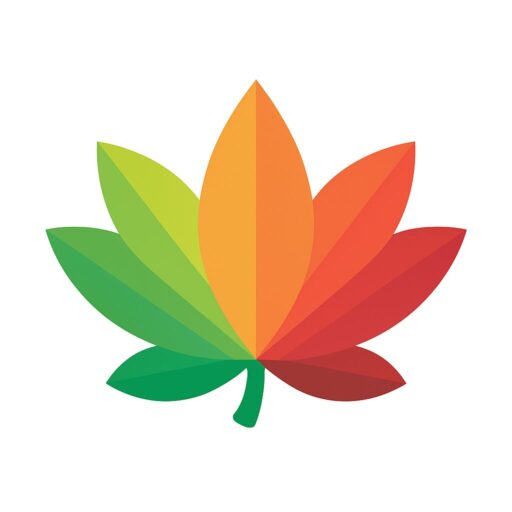Power of Google for Success & Growth Simplified
Turn the world’s most powerful search engine into your personal growth coach
Remember when personal development meant buying expensive books, attending weekend seminars, or hiring a life coach? Those options still exist, but there’s something remarkable happening right at your fingertips: Google has quietly become the most powerful personal development tool ever created.
Think about it. You have instant access to virtually all human knowledge, free courses from top universities, productivity tools that sync across all your devices, and communities of people working on the same goals you are. The challenge isn’t finding resources anymore—it’s knowing how to use what’s already there.
Let me show you how to transform Google from a simple search engine into your personal development command center.
Master the Art of Strategic Learning
Start with Smart Search Strategies
Most people use Google like a blunt instrument, typing in vague questions and hoping for the best. But strategic searchers know how to dig deeper. Instead of searching “how to be more confident,” try “confidence building exercises psychology research” or “social anxiety techniques cognitive behavioral therapy.”
Use quotation marks for exact phrases, add “site:edu” to find academic research, or include “PDF” to discover downloadable guides and worksheets. The difference between casual browsing and strategic learning often comes down to how you ask the question.
Leverage Google Scholar for Credible Information
When you’re serious about understanding a topic, Google Scholar becomes invaluable. Want to understand productivity? Don’t just read blog posts—dive into actual research on habit formation, cognitive load theory, and attention management. You’ll find peer-reviewed studies that cut through the noise and give you evidence-based strategies.
Discover Free Education Gold Mines
Google has quietly become one of the world’s largest education providers. Google Career Certificates offer structured paths in high-demand fields like data analytics, UX design, and project management. These aren’t just random online courses—they’re developed with industry leaders and often accepted as college credit.
But don’t stop there. Use Google to find free courses from MIT, Stanford, and Harvard through platforms like edX and Coursera. Search for “free online course [your topic]” and you’ll uncover resources that would have cost thousands just a decade ago.
Build Your Personal Productivity Ecosystem
Create Your Digital Brain with Google Workspace
The real magic happens when you stop thinking of Google tools as separate apps and start seeing them as an integrated system for personal growth.
Google Keep becomes your idea capture system—those random thoughts about career changes, book recommendations, or weekend project ideas. Tag them, color-code them, and watch patterns emerge in what excites you most.
Google Calendar transforms from a scheduling tool into a life design instrument. Block time for learning, reflection, and skill practice. Schedule weekly reviews to assess your progress. Create separate calendars for different life areas so you can see where you’re investing your time versus where you want to be investing it.
Google Docs becomes your reflection space. Start a weekly review document, create templates for goal-setting sessions, or maintain a running list of lessons learned from mistakes and successes.
Master the OKR Framework
Google uses Objectives and Key Results (OKRs) internally, and you can adopt this same system for personal development. Instead of vague resolutions like “get healthier,” create specific objectives like “Improve physical fitness” with measurable key results like “Run 3 miles without stopping” and “Attend yoga class twice weekly for 3 months.”
Track these in Google Sheets with formulas that automatically calculate your progress. The visibility and accountability this creates is powerful—you can’t lie to a spreadsheet.
Develop Deeper Self-Awareness
Turn Search History into Self-Discovery
Your Google search history is a fascinating window into your subconscious interests and concerns. Periodically review what you’ve been searching for—the patterns might surprise you. Are you constantly looking up career advice? Relationship guidance? Creative inspiration? These searches reveal what’s really on your mind, even when you’re not consciously aware of it.
Use Google Trends for Personal Insights
Google Trends isn’t just for marketers. Search for topics you’re interested in and see how interest has changed over time. This can help you understand whether you’re jumping on temporary fads or investing in lasting areas of growth.
Create Digital Accountability Systems
Set up Google Alerts for topics related to your development goals. If you’re working on leadership skills, create alerts for “leadership development,” “management techniques,” and “team building.” You’ll receive regular emails with fresh content, keeping your goals top of mind and introducing you to new perspectives.
Build Meaningful Connections
Research Before You Network
Before attending networking events or reaching out to potential mentors, use Google to research the people and organizations you want to connect with. Read their recent interviews, understand their current projects, and find genuine common ground. This transforms superficial networking into meaningful relationship building.
Join the Right Communities
Google Groups, while not as flashy as newer platforms, hosts incredibly valuable niche communities. Search for groups related to your interests—you’ll often find experienced professionals sharing insights they wouldn’t post publicly elsewhere.
Leverage Google Meet for Virtual Mentorship
Don’t limit yourself to local mentors. Use Google Meet to connect with people anywhere in the world. Many successful people are willing to have brief video calls with someone genuinely interested in learning from their experience.
Optimize Your Digital Reputation
Monitor Your Online Presence
Google yourself regularly—not out of vanity, but out of strategy. What story do the search results tell about you? Are the first page results aligned with where you want your career and personal brand to go?
Set up Google Alerts for your name so you know when you’re mentioned online. This helps you respond to opportunities quickly and address any reputation issues before they grow.
Create Content That Reflects Your Growth
Use Google Sites to create a simple personal website, or start a blog on Blogger. Document your learning journey, share insights from books you’re reading, or create resources for others facing similar challenges. This not only helps others but also solidifies your own learning and builds your reputation as someone committed to growth.
Advanced Strategies for Power Users
Automate Your Learning
Use Google’s automation tools to create learning systems that work while you sleep. Set up IFTTT (If This Then That) integrations that automatically save interesting articles to Google Drive, add new vocabulary words to Google Sheets, or create calendar reminders for daily habits.
Analyze Your Progress with Data
Create dashboards in Google Sheets that track your key metrics—books read, skills practiced, networking connections made, or whatever matters for your goals. Visualize your progress with charts and graphs. There’s something powerful about seeing your growth represented visually.
Use Voice Commands for Reflection
Google Assistant can become your reflection partner. Create daily routines where you voice-record your thoughts about what went well, what you learned, and what you want to improve. These recordings can be automatically transcribed and saved to Google Docs for later review.
The Integration Advantage
The real power of using Google for personal development isn’t in any single tool—it’s in how they all work together. Your search history informs your learning goals. Your calendar blocks time for skill development. Your documents capture insights from that learning. Your alerts keep you updated on new developments. Your connections open doors to new opportunities.
This integrated approach means your personal development becomes part of your daily digital life rather than something separate you have to remember to do. The tools you’re already using become the infrastructure for your growth.
The 7-Day Google Personal Development Kickstart
Feeling overwhelmed by all these possibilities? Here’s a simple 7-step program to get you started. Spend just 15-20 minutes on each step, and by the end of the week, you’ll have a personalized Google-powered growth system up and running.
Day 1: Set Up Your Digital Brain
Action: Create your Google Keep and set up your first capture system
- Download Google Keep on your phone and computer
- Create 5 colored labels: “Ideas,” “Learning,” “Goals,” “Reflection,” and “Action Items”
- Spend the rest of the day capturing every interesting thought, article, or insight in Keep
- Success marker: You’ve saved at least 3 items with appropriate labels
Day 2: Design Your Learning Strategy
Action: Identify your top growth area and create your first Google Alert
- Choose one skill or topic you want to develop over the next 3 months
- Set up a Google Alert using specific keywords (e.g., “leadership development techniques” not just “leadership”)
- Search for and bookmark 3 high-quality resources on your chosen topic
- Success marker: Your first alert emails start arriving and you’ve identified credible learning sources
Day 3: Create Your Progress Tracking System
Action: Build a simple Google Sheets dashboard for your goals
- Open Google Sheets and create a new document called “Personal Development Tracker”
- Set up columns for: Date, Activity, Time Spent, Key Insight, Progress Rating (1-5)
- Add a simple chart to visualize your weekly progress
- Success marker: You’ve logged your first day of focused learning or skill practice
Day 4: Establish Your Reflection Routine
Action: Start your Google Docs personal development journal
- Create a new Google Doc titled “Growth Journal [Your Name]”
- Write your first entry answering: What did I learn this week? What challenged me? What do I want to improve?
- Set up a weekly recurring calendar reminder for “Journal Reflection Time”
- Success marker: You’ve completed your first meaningful reflection session
Day 5: Optimize Your Digital Reputation
Action: Google yourself and create improvement plan
- Search your full name and review the first two pages of results
- Set up a Google Alert for your name
- If needed, create a simple Google Site with your bio and interests, or update existing profiles
- Success marker: You know exactly what story your online presence tells and have a plan to improve it
Day 6: Build Your Learning Calendar
Action: Schedule dedicated growth time using Google Calendar
- Block out 3 different time slots this week: “Skill Practice,” “Learning Time,” and “Weekly Review”
- Create a separate calendar called “Personal Development” so you can track this time investment
- Schedule your first focused learning session for tomorrow
- Success marker: Your calendar now includes protected time for growth activities
Day 7: Connect and Network Strategically
Action: Research and reach out to one person who inspires you
- Use Google to research 3 people working in your area of interest
- Find their contact information or social media profiles
- Send one thoughtful message expressing genuine interest in their work (not asking for anything)
- Join one Google Group or online community related to your development goals
- Success marker: You’ve made one authentic connection and joined a relevant community
Week 2 and Beyond: Integration and Expansion
Once you’ve completed the 7-day kickstart, choose 2-3 of these systems that felt most natural and valuable to you. Spend the next week deepening those practices before adding new ones. The goal is sustainable growth, not overwhelming yourself with too many new habits at once.
Making It Sustainable
The key to long-term success with this approach is starting small and building gradually. Don’t try to implement every strategy at once. Pick one or two tools that resonate with your current needs and master them before adding more complexity.
Remember, the goal isn’t to use every Google tool available—it’s to create a personal development system that actually works for your life and personality. Some people thrive with detailed tracking and analysis. Others prefer simple capture and reflection systems. Use Google’s flexibility to design an approach that you’ll actually stick with.
Your Next Steps
Start today by doing three simple things: Set up a Google Alert for one topic you want to learn more about, block one hour in Google Calendar this week for focused learning, and create a new Google Doc titled “Personal Development Journal” where you’ll capture insights and reflections.
These small actions will begin transforming your relationship with information from passive consumption to active development. And that transformation—turning the world’s information into your personal growth toolkit—might be the most valuable skill you can develop in our digital age.
The resources are there. The tools are free. The only question left is: What do you want to become?






